Results
-
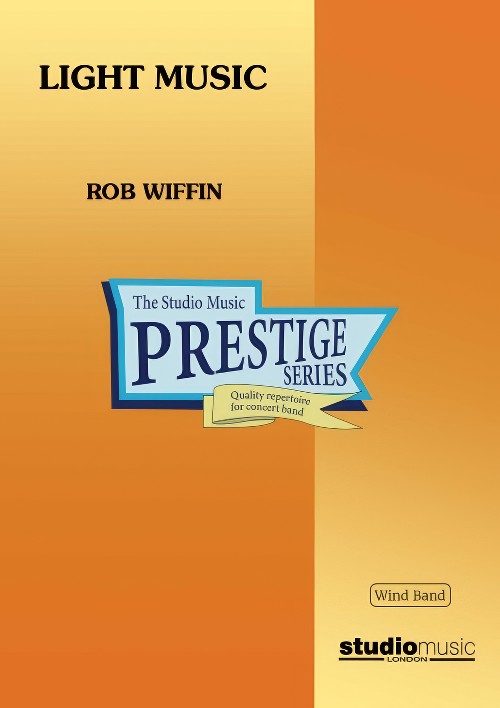 £27.95
£27.95Light Music (Concert Band - Score only) - Wiffin, Rob
The title Light Music alludes to different things. Most of the music in the suite is light in nature, and is in the inherently British tradition of 'light music' - original pieces which are often descriptive but essentially melodic. In another sense the music depicts various aspects of light itself. The title itself is a trick of the light!The first movement, Lightscape, portrays shifting patterns and types of light, highlighting some details and obscuring others. It is sometimes vibrant, dancing and full of movement, and sometimes tranquil.The second movement, At the going down of the sun, considers the light of the sun as it sets. Because of the nature of his career, the composer has written a fair amount of ceremonial music and this movement is close to that genre once again. There is, in the title, a reference to the familiar Remembrance line 'At the going down of the sun and in the morning we will remember them' from the poem For the Fallen by Robert Laurence Binyon (1869-1943) written in September 1914, a few weeks after the outbreak of the First World War. While the music is not a setting of these words - or in any way referential - there is an echo of the words 'We will remember them'.The suite finishes with Set Alight which starts off with a few combustible bars as the flame catches and then the fire is under way.Duration: 11.30
Estimated dispatch 7-14 working days
-
 £137.95
£137.95Light Music (Concert Band - Score and Parts) - Wiffin, Rob
The title Light Music alludes to different things. Most of the music in the suite is light in nature, and is in the inherently British tradition of 'light music' - original pieces which are often descriptive but essentially melodic. In another sense the music depicts various aspects of light itself. The title itself is a trick of the light!The first movement, Lightscape, portrays shifting patterns and types of light, highlighting some details and obscuring others. It is sometimes vibrant, dancing and full of movement, and sometimes tranquil.The second movement, At the going down of the sun, considers the light of the sun as it sets. Because of the nature of his career, the composer has written a fair amount of ceremonial music and this movement is close to that genre once again. There is, in the title, a reference to the familiar Remembrance line 'At the going down of the sun and in the morning we will remember them' from the poem For the Fallen by Robert Laurence Binyon (1869-1943) written in September 1914, a few weeks after the outbreak of the First World War. While the music is not a setting of these words - or in any way referential - there is an echo of the words 'We will remember them'.The suite finishes with Set Alight which starts off with a few combustible bars as the flame catches and then the fire is under way.Duration: 11.30
Estimated dispatch 7-14 working days
-
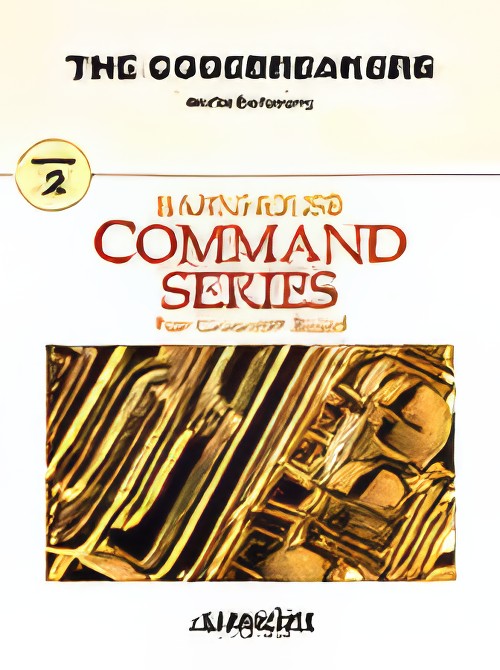 £59.00
£59.00The Codebreakers (Concert Band - Score and Parts) - Budiansky, Mollie
Music can at times feel as if it is a secret code. Cracking the code, be it notation on a page or a new set of vocabulary words, is cause for celebration, and "The Codebreakers" is a joyous look at music as a shared language. Scored generously to accommodate young bands both large and small, this concert work presents distinct melodies both independently and stacked on top of one another, meant to interlock like a solved puzzle. "The Codebreakers" serves as a teaching opportunity to discuss melodies and countermelodies; interpreting the same material in different styles; and listening across the band for shared lines. Every section gets a chance to be featured, and the low brass and woodwinds will especially love their moment in the spotlight. Duration: 3.15
Estimated dispatch 7-14 working days
-
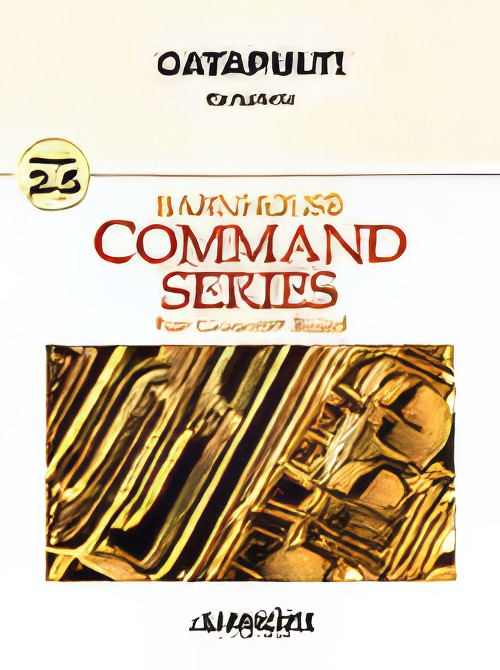 £59.00
£59.00Catapult! (Concert Band - Score and Parts) - Huckeby, Ed
The continuous rhythmic energy and drive of "Catapult!" is infectious! Using dramatically contrasting syncopated melodic lines and ultra-legato contemporary harmonic phrases, the composer creates a colorful palette of sound which is both incredibly appealing and uniquely mysterious. At mid-point, the effect of the catapult is felt through rather dissonant descending chords, leading to an exciting resolution and conclusion in a new key. Looking for something different...but very playable? Check out "Catapult!" Duration: 3.00
Estimated dispatch 7-14 working days
-
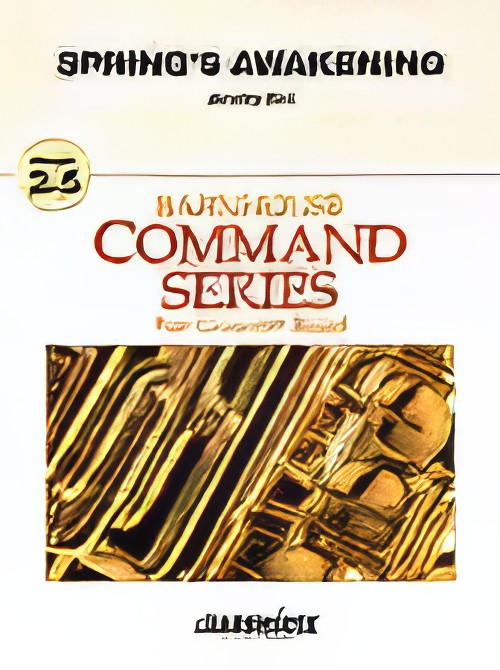 £59.00
£59.00Spring's Awakening (Concert Band - Score and Parts) - Bell, Jeremy
Flowers bloom and the world stirs with life renewed in "Spring's Awakening!" The music begins with a driving ostinato in the clarinets, and staggered entrances that portray flowers opening for the first time. After the entire ensemble enters, two different melodic themes are passed throughout the ensemble, layered over driving 8th-note rhythms that propel the music forward. "Spring's Awakening" is an engaging and beautiful work that makes a perfect fit for any spring or end of the year concert. Duration: 2.15
Estimated dispatch 7-14 working days
-
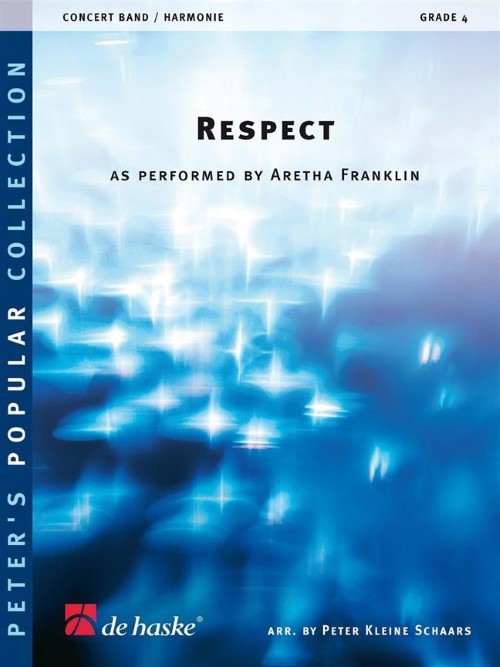 £84.99
£84.99Respect (Concert Band - Score and Parts) - Schaars, Peter Kleine
Peter Kleine Schaars is one of the top arrangers at De Haske. His catalogue consists of the very best songs from different genres. Respect as performed by the Queen of Soul, Aretha Franklin, is an addition to his list of arrangements - an all-time classic with a message that is still very relevant.Duration: 2.30
Estimated dispatch 7-14 working days
-
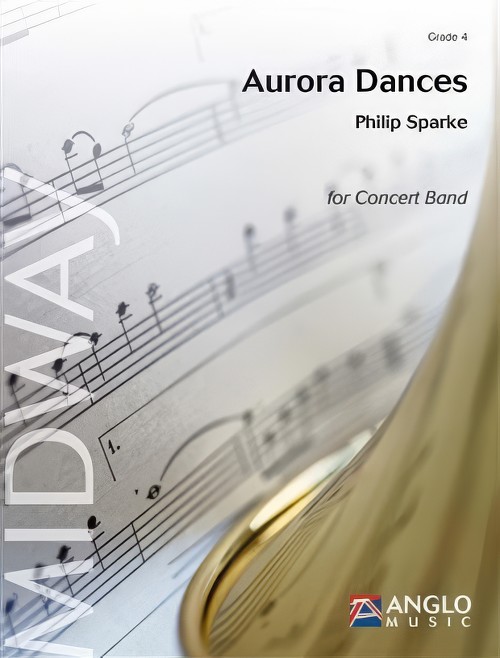 £152.99
£152.99Aurora Dances (Concert Band - Score and Parts) - Sparke, Philip
Aurora Dances was commissioned by the Hong Kong-based Winter Band Festival, and consists of three movements, to be played without a break. Aurora Borealis opens with florid woodwind figures and highlights different sections of the band in turn. The second movement Aurora Australis leads to a sombre chorale, which builds to a full-band climax. The finale Aurora Dances is characterised by rhythmic, dance-like themes. A central section features a contrasting legato melody, but this doesn't dispel the energetic feel of the opening, which returns to close the work.Duration: 8.45
Estimated dispatch 7-14 working days
-
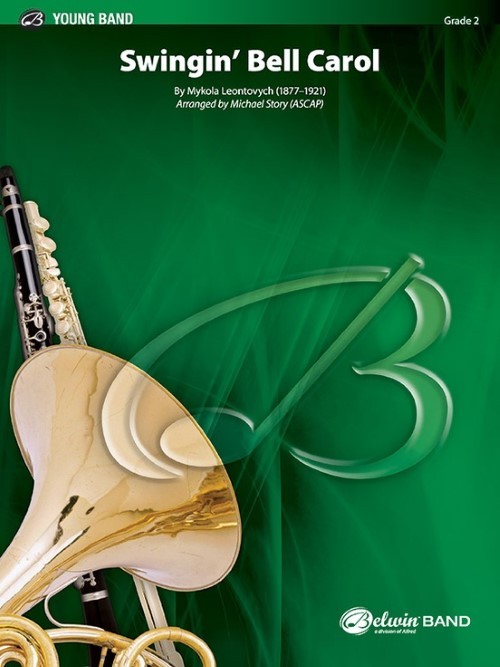 £55.50
£55.50Swingin' Bell Carol (Concert Band - Score and Parts) - Leontovych, Mykola Dmytrovich - Story, Michael
The inspiration of this setting comes from Ukrainian composer Mykola Leontovych's original 1914 work for mixed choir, which demonstrates both his sacred and nationalistic style. The four-note ostinato is known by several different titles and performed in a wide variety of styles including classical, metal, country, rock, and pop, and, with this jazz setting, the original takes on yet another new flavour.Duration: 2:00
Estimated dispatch 7-14 working days
-
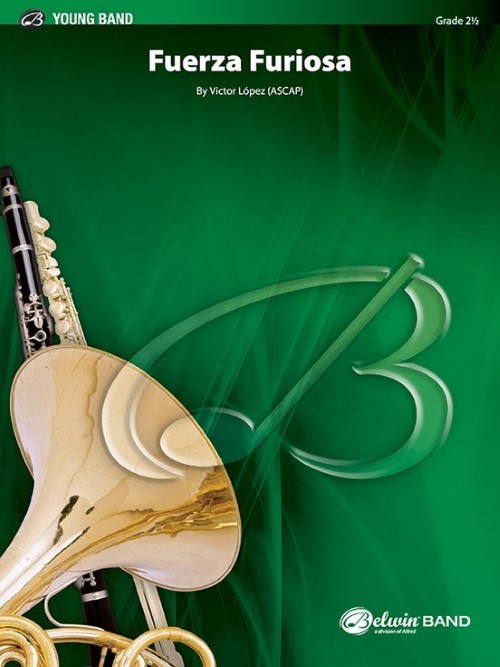 £60.50
£60.50Fuerza Furiosa (Concert Band - Score and Parts) - Lopez, Victor
Inspired by cyclones, this original work provides a fresh and contemporary musical experience. Opening with the calm before the storm, the frenzy grows with aggressive musical punctuations and transitions peacefully in the aftermath with a heroic final statement. Dynamic with plenty of fury, this composition is remarkably different and powerful.Duration: 3:00
Estimated dispatch 7-14 working days
-
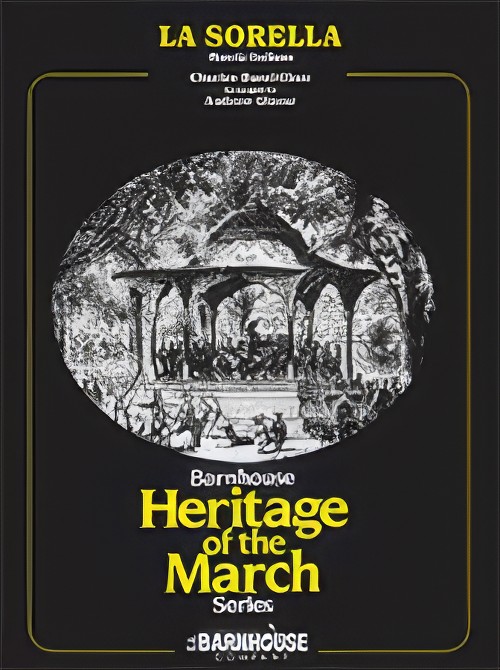 £72.00
£72.00La Sorella (Marcia Italiano) (Concert Band - Score and Parts) - Glover, Andrew
Marches from all around the world have different styles and sounds indigenous to each country of origin, and Italian marches have long been known and beloved for their melodic appeal and florid countermelodies. "La Sorella" is a famous concert march of Italian origin, available for the first time ever in a concert band arrangement. Audiences will delight to the happy melodies of this classic march. Delightful music from beginning to end! Duration: 3.45
Estimated dispatch 7-14 working days
